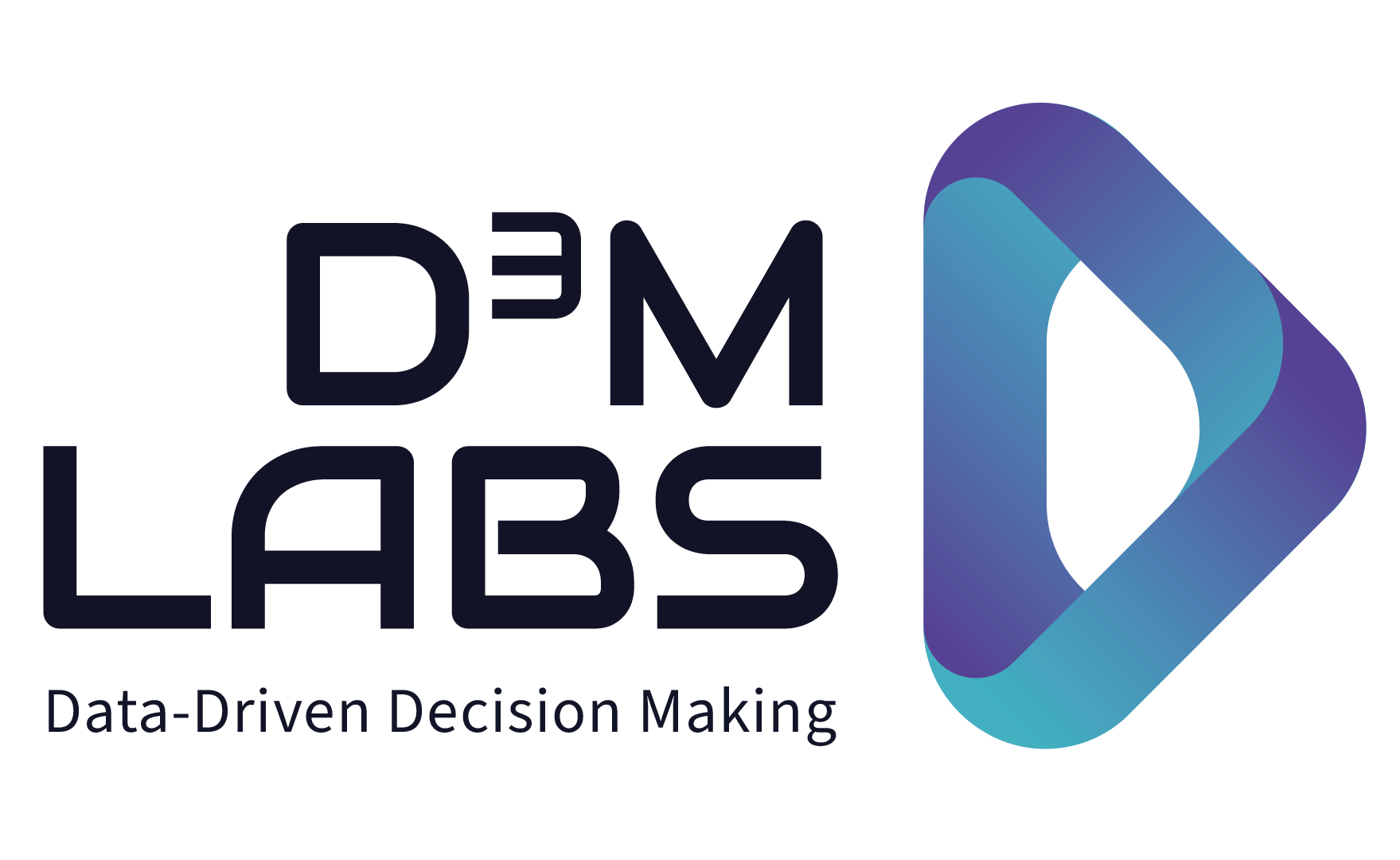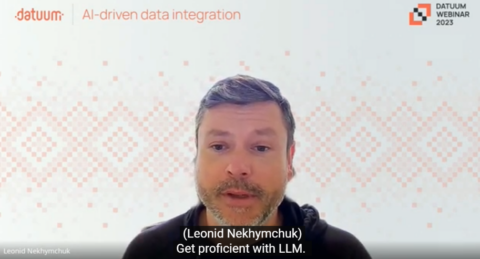Why the Digital World Needs Operations
Operations is the often-overlooked hero of profitable growth. Antonia Landi and Elizabeth Press (myself) connected over the insight that operational excellence is the key to business success, be it in product, data, on the factory floor or the newsroom. Even creative agencies have processes. Ops and processes will become a passport to play, as legislators catch up with technology (NIS2, DORA as examples) and ISO 27001 becomes a standard business hygiene in many industries.
Die Sicht eines Data Leaders auf Cybersicherheit
Dieser Blog enthält einige meiner wichtigsten Eindrücke von der kürzlich stattgefundenen niederländisch-bayerischen Konferenz ‚Zusammenarbeit in der Cybersicherheit: Die wichtigsten Aufgaben für die Unternehmensführung‘ in München, organisiert von InnovationQuarter. Ich hatte das Privileg, von der Recruiting-Firma GCS zu der Veranstaltung eingeladen zu werden. Die Welt wird immer digitaler und gefährlicher, was den Gedankenaustausch über Cybersicherheit zwischen Freunden und Geschäftspartnern unerlässlich macht. Ich verbrachte einen Tag damit, brillanten Köpfen aus den Niederlanden, Bayern und darüber hinaus zuzuhören, die darüber sprachen, wie man Cybersicherheit zu einem C-Suite-Thema machen kann.
A Data Leader’s Perspective on Cybersecurity
This blog entails a few of my high-level takeaways from the recent Dutch-Bavarian „Collaboration in Cybersecurity: The most important tasks for business leaders“ conference in Munich, Organized by InnovationQuarter. I was privileged to get invited by the recruiting firm GCS to the event. The world gets increasingly digital and dangerous, making the exchange of ideas about cybersecurity between friends and trading partners essential. I spent a day listening to brilliant minds from the Netherlands, Bavaria and beyond talk about what how to make Cybersecurity a C-Suite issue.
Operational Analytics, a New Paradigm for Delivering Data-Driven Impact
From higher ROI to easier use, operational analytics answers many contemporary challenges facing data teams. I (Elizabeth Press), spoke with Dani Solà Senior Vice President of Data and Analytics at Clark about Operational Analytics. Success, however, necessitates a well-governed data platform and solid security concepts. When your stakeholders come back with questions, it’s a sign of engagement and thus relevance of the system you built.
How Large Language Models are Transforming Data Operations
Large language models and generative AI are disrupting how data is done. I (Elizabeth Press from D3M Labs) spoke with Leonid Nekhymchuk (Leo), CEO and Co-Founder of Datuum.ai, about how large language models will transform data operations. Datuum uses AI to connect data sources with target models, automate mapping, making data integration less time-consuming and less expensive.
Experiences of Toxic Leadership in Data
Kasia Musur from VENT conducted research about experiences of toxic leadership amongst data professionals in cooperation with Elizabeth Press from D3M Labs. The blog is a high level summary of a couple of insights with a link to the full interview on the D3M Labs YouTube channel.
Ensuring the Data Team’s Financial Viability, Beyond Cash Burn – An Interview with Timur Bokari
In his current role, Timur Bokari supports the growth of a FinTech in the Recurring Revenue Financing space by developing new customer segments and evolving strategy based on existing data. Timur talks to D3M Labs about the financial viability of data teams. He explains the financial and accounting mechanisms that are relevant to Data Leaders. Data team viability lies in the link between data availability and decision-making capability. Financial sustainability and job stability in data requires clearer correlations between data and revenue growth and cost reduction.
Die finanzielle Überlebensfähigkeit des Data Teams gewährleisten, über den Cash-Burn hinaus – Ein Interview mit Timur Bokari
In seiner aktuellen Position unterstützt Timur Bokari das Wachstum eines FinTechs im Bereich Recurring Revenue Financing durch die Erschließung neuer Kundensegmente und die Weiterentwicklung der Strategie auf Basis vorhandener Daten. Timur spricht mit D3M Labs über die finanzielle Nachhaltigkeit von Datenteams. Er erklärt die Finanz- und Buchhaltungsmechanismen, die für Data Leaders relevant sind. Die Überlebensfähigkeit von Datenteams liegt in der Verbindung zwischen Datenverfügbarkeit und Entscheidungsfähigkeit. Die finanzielle Nachhaltigkeit und Arbeitsplatzstabilität im Datenbereich erfordert klarere Korrelationen zwischen Daten und Umsatzwachstum und Kostensenkung.
Die nachhaltige Beschaffung von Datentools ist dringend erforderlich,Teil 2: Wie verhindert man, dass der planlose Kauf von coolen Tools das Engineering-Team aus der Bahn wirft?
Ingenieure und Customer Success Teams sind die unbesungenen Helden des IT-Betriebs.
Hast du dich schon einmal gefragt, was sie über deine Kaufgewohnheiten denken? Vor allem in virtuellen Organisationen können Ingenieure und Kundenerfolgsteams bei Anbietern in ihrer Programmierhöhle leben, hart arbeiten und für andere unsichtbar sein. Wenn man impulsive coole Tools kauft, ohne die Ingenieure mit einzubeziehen, kann das nicht nur diese schwer zu rekrutierenden Fachleute in den Wahnsinn treiben und die Beziehungen zu den Anbietern belasten, sondern auch die Entwicklung Ihrer Plattform und wichtige Projekte wie die Datenmigration zum Scheitern bringen. Das könnte Ihre Ingenieure so frustrieren, dass sie kündigen.
Sustainable data tool purchasing, Part 2: How to prevent haphazard cool tool purchasing from de-railing your engineering team
Engineers and customer success teams are unsung heroes of IT Operations.
Have you wondered what your they think of your purchasing habits? Especially in virtual organizations, engineers and customer success counterparts at vendors can live in their coding-cave, working hard, invisible to others. Impulsive cool tool purchasing without including engineers might not only be driving those difficult to recruit professionals crazy and burn vendor relationships, it could derail your platform development and important projects such as data migration. It might frustrate your engineers enough to quit.








